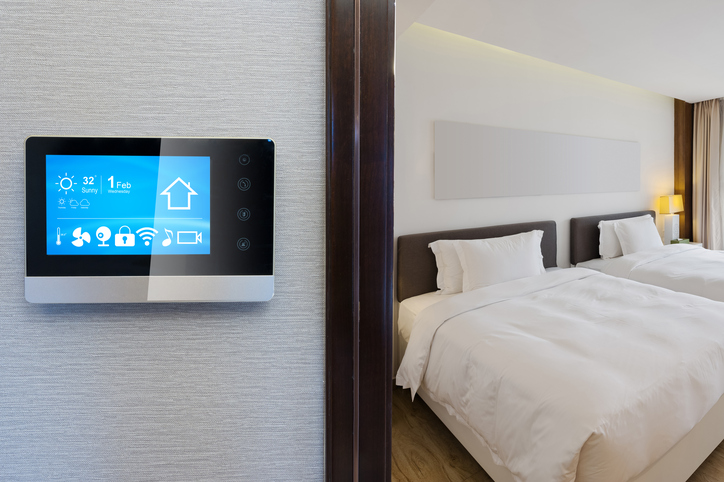They look like something taken from a Philip K. Dick novel, but we’re actually talking about hardware and software tools that are already in use in some areas of the tourism industry. These tools are serving to change a model where innovation and knowledge are the keys to achieving more efficient, sustainable and personalised travel.
Personalised rooms
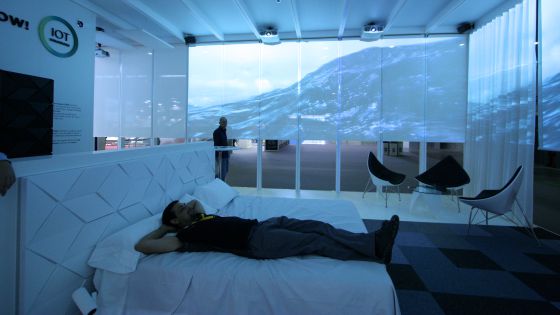
Surround image technology is now being used in hotel rooms and is perhaps the easiest to apply, as the technique has already been thoroughly tested in other areas. The projector is controlled by an app that converts the walls of the room into a huge 360º screen. Photos, video, browsing online, it’s all possible.
Chains like Hotusa and BlueBay Hotels are already implementing projects in this area.
Facial passports
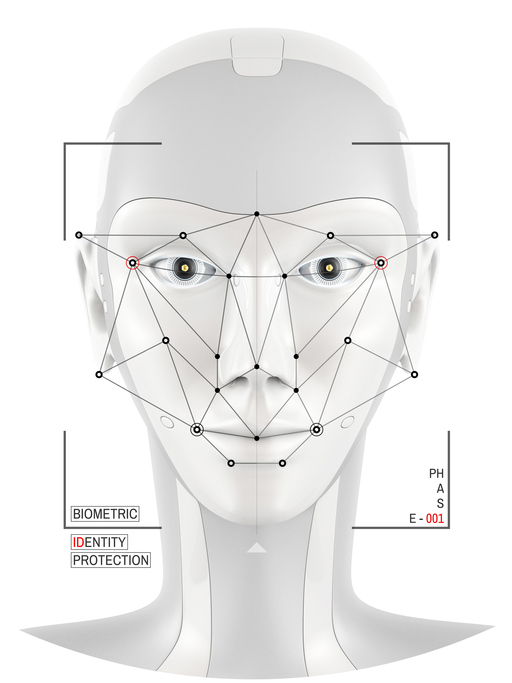
Facial recognition technology has been around for years, so it was no major surprise to see it making its way into airports too. The days of using passports seem to be numbered with many countries now basing their security controls on biometrics to reduce waiting times and strengthen security. KLM Airlines launched its trial “biometric boarding” service at Schipol Airport in Amsterdam last year.
Chatbots selling trips
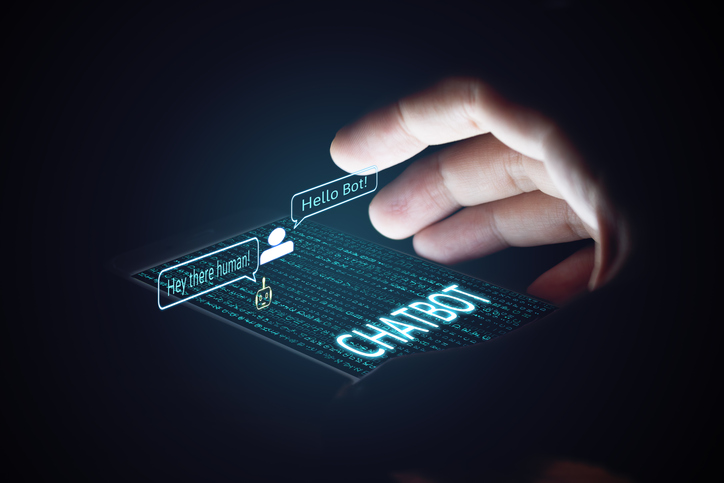
Bots are software programs that talk like humans and can work via messaging apps like WhatsApp, Telegram and Messenger. Some travel agencies are now using them to chat directly with customers and sell their products, and major companies like Destinia are using them on Facebook Messenger.
3D printers
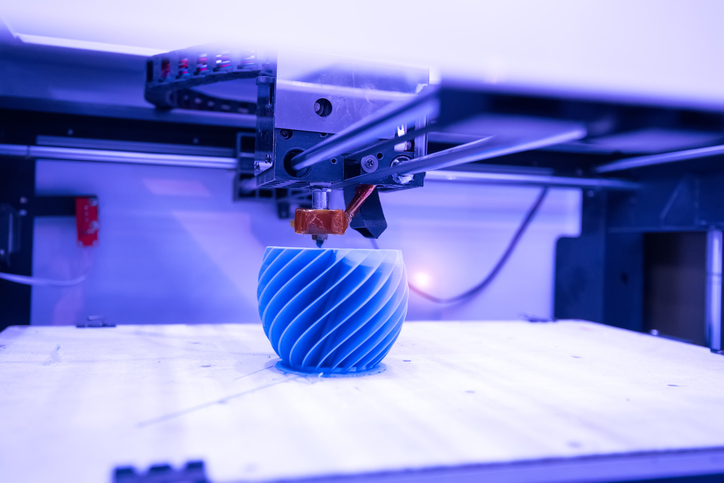
A large number of well-known hotel companies are looking into the possibility of installing 3D printers as an additional tool for their maintenance departments. It’s a relatively quick and easy way for a hotel to replace damaged or broken parts in rooms, restaurants, etc. However, dependency on suppliers would obviously decrease, as would the size of spare parts storerooms in the hotels.
Robotic mobility
There are already several prototypes of self-driving shuttle buses working in London, and autonomous driving is set to be one of the most significant transport changes in the history of the automotive industry. The possibilities for tourists using this type of transport are unlimited: excursions, taxis, transfers, etc. The flying car in Blade Runner was never the future; it’s going to be the robot taxi in Total Recall.
Personalised cruise experiences
Xevo develops software products and solutions and at the start of 2017 created very attractive systems for two large companies. The technology is designed to allow passengers, crew and even the ship itself to interact and be constantly connected to personalise the passenger’s experience as much as possible.
Drones soaring through the sky
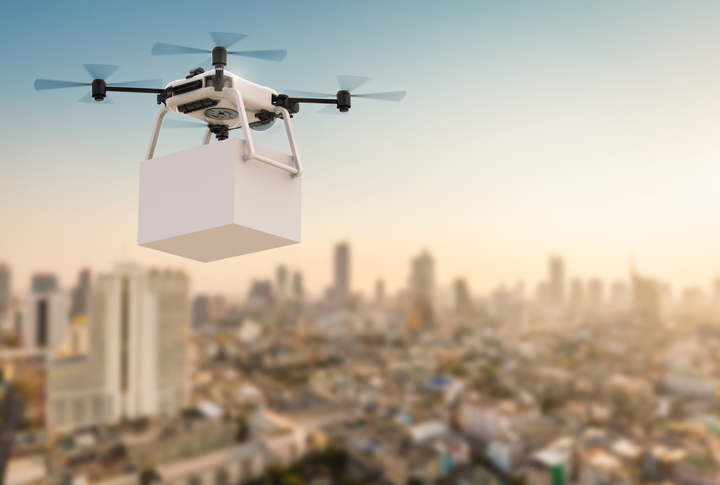
Today, any promotional video worth its salt has excellent footage and aerial shots captured by drones to advertise their products with remarkable cinematographic quality. In addition to this marketing approach, the hotel industry is now using drone technology for monitoring tasks, room service and aid work on beaches and swimming pools. And if we’re talking about doing it big time, there’s already been flights with drone taxis in Dubai. Watch out, the futuristic vision of Blade Runner… OMG!



